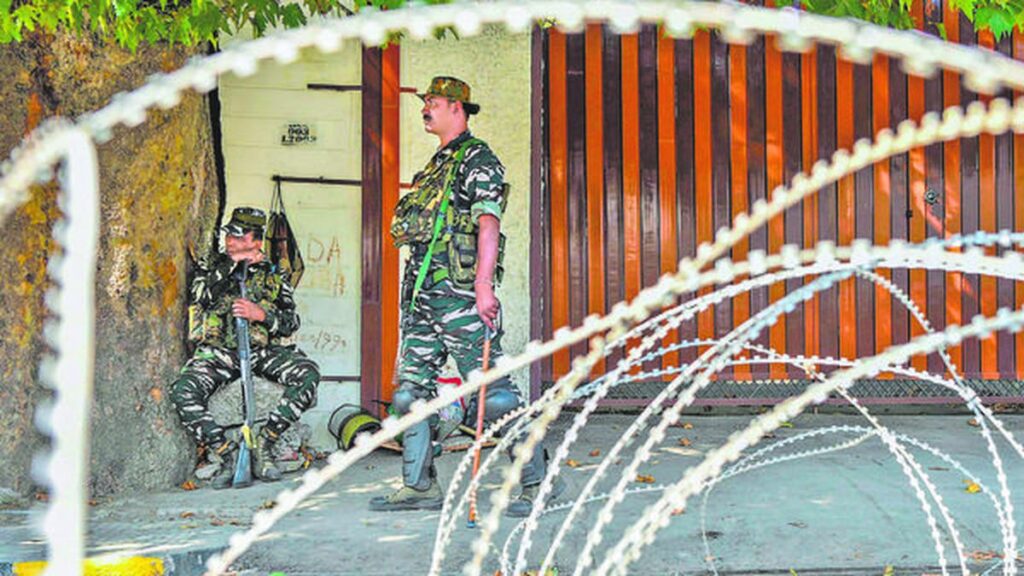The Centre has approved ‘Y+’ category Central Reserve Police Force (CRPF) security cover for Sikkim Bharatiya Janata Party (BJP) leader Dilli Ram Thapa. This decision comes amid growing concerns over the safety of political figures in the region and underscores the government’s proactive approach to addressing security threats faced by individuals holding key positions in the public sphere.
Dilli Ram Thapa, a prominent leader of the BJP in Sikkim, has been vocal in advocating for the party’s agenda and representing the interests of the people in the state. His active involvement in political activities and public engagements has garnered both support and attention, making him a significant figure in the local political landscape.
The decision to provide ‘Y+’ category CRPF security to Dilli Ram Thapa reflects the government’s recognition of the potential threats faced by political leaders, particularly those who are vocal in expressing their views and opinions. The security cover is intended to safeguard Thapa against any potential risks to his safety and well-being, ensuring that he can continue to discharge his duties and responsibilities without fear or intimidation.
The ‘Y+’ category CRPF security cover includes a team of trained personnel who will be responsible for providing round-the-clock protection to Dilli Ram Thapa. This security detail will accompany him during public appearances, travel, and other activities, ensuring a high level of vigilance and readiness to respond to any security threats or emergencies that may arise.
The decision to provide CRPF security to Dilli Ram Thapa comes in the wake of heightened security concerns in the region, particularly in light of the prevailing political tensions and security challenges. Sikkim, like many other states in the northeastern region, has witnessed occasional incidents of violence and unrest, underscoring the need for enhanced security measures to protect public figures and maintain law and order.
The CRPF, known for its professionalism and expertise in handling security-related matters, is well-equipped to provide effective protection to individuals at risk. By deploying CRPF personnel to provide security cover to Dilli Ram Thapa, the government aims to reassure him and the public of its commitment to ensuring a safe and secure environment for political leaders and citizens alike.
The decision to provide ‘Y+’ category CRPF security to Dilli Ram Thapa has been welcomed by leaders across the political spectrum, with many expressing appreciation for the government’s proactive approach to addressing security concerns. This move sends a strong message about the government’s resolve to protect individuals who play a vital role in the democratic process and uphold the principles of freedom of expression and political participation.
However, it is essential to recognize that providing security cover to political leaders is not without its challenges and complexities. While security measures are necessary to safeguard individuals against potential threats, they must be balanced with considerations of transparency, accountability, and respect for civil liberties.
Moreover, the decision to provide CRPF security to Dilli Ram Thapa should not be viewed in isolation but as part of a broader strategy to enhance security infrastructure and capabilities in the region. This includes strengthening law enforcement agencies, improving intelligence gathering and sharing mechanisms, and addressing the root causes of insecurity and instability.
In addition, the decision to provide ‘Y+’ category CRPF security to Sikkim BJP leader Dilli Ram Thapa underscores the government’s commitment to ensuring the safety and security of political leaders in the region. By deploying CRPF personnel to provide round-the-clock protection, the government aims to reassure Thapa and the public of its commitment to upholding democratic principles and protecting the rights and freedoms of all citizens. However, it is essential to approach security measures with caution and sensitivity, ensuring that they are implemented in a manner that respects individual rights and freedoms while effectively addressing security threats.

